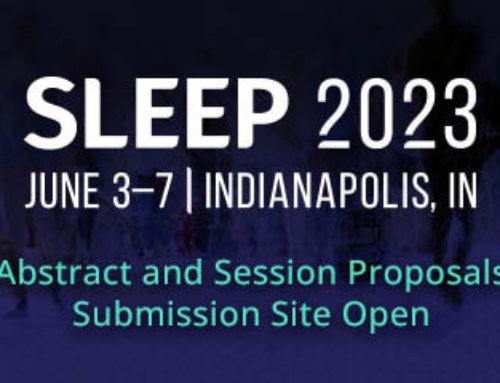EMBARGOED FOR RELEASE
June 10, at 12:01 a.m.
CONTACT:
Kathleen McCann
(708) 492-0930, ext. 9316
WESTCHESTER, Ill. – Extended driving at night impairs an individual’s driving performance, and should, therefore, be limited, according to a research abstract that will be presented on Tuesday at SLEEP 2008, the 22nd Annual Meeting of the Associated Professional Sleep Societies (APSS).
The study focused on 14 healthy young men. The participants drove in three nocturnal driving sessions (3-5 a.m., 1-5 a.m. and 9 p.m.-5 a.m.) on an open highway. Inappropriate line crossings in the last hour of driving of each session, sleep variables, self-perceived fatigue and sleepiness were analyzed.
According to the results, compared to the 3-5 a.m. driving session, the incidence rate ratio of inappropriate line crossings increased by 2.6 in the 1-5 a.m. driving session and by 4.0 in the 9 p.m.-5 a.m. driving session. Compared to the reference session (9-10 p.m.), the incidence rate ratio of inappropriate line crossings were 6.0 in the 3-5 a.m. driving session, 15.4 in the 1-5 a.m. driving session and 24.3 in the 9 p.m.-5 a.m. driving session. Self-related fatigue and sleepiness scores were both correlated to driving impairment in the 1-5 a.m. and 9 p.m.-5 a.m. driving sessions and increased significantly during the nocturnal driving sessions compared to the reference session.
“Up to now, regulations have taken into account maximal duration of driving, but the cumulative effects of sleepiness and fatigue were never studied or integrated in the driving regulation,” said Pierre Philip, of Université Bordeaux in France, one of the authors of the study. “Here, we show that performance is badly affected by time of the day, and therefore, we think that a warning to limit maximum nocturnal driving duration should be included in professional safety recommendations.”
It is recommended that adults get between seven and eight hours of nightly sleep.
The American Academy of Sleep Medicine (AASM) offers the following tips on how to get a good night’s sleep:
- Follow a consistent bedtime routine.
- Establish a relaxing setting at bedtime.
- Get a full night’s sleep every night.
- Avoid foods or drinks that contain caffeine, as well as any medicine that has a stimulant, prior to bedtime.
- Do not bring your worries to bed with you.
- Do not go to bed hungry, but don’t eat a big meal before bedtime either.
- Avoid any rigorous exercise within six hours of your bedtime.
- Make your bedroom quiet, dark and a little bit cool.
- Get up at the same time every morning.
Those who suspect that they might be suffering from a sleep disorder are encouraged to consult with their primary care physician or a sleep specialist.
The annual SLEEP meeting brings together an international body of 5,000 leading researchers and clinicians in the field of sleep medicine to present and discuss new findings and medical developments related to sleep and sleep disorders.
More than 1,150 research abstracts will be presented at the SLEEP meeting, a joint venture of the AASM and the Sleep Research Society. The three-and-a-half-day scientific meeting will bring to light new findings that enhance the understanding of the processes of sleep and aid the diagnosis and treatment of sleep disorders such as insomnia, narcolepsy and sleep apnea.
SleepEducation.com, a patient education Web site created by the AASM, provides information about various sleep disorders, the forms of treatment available, recent news on the topic of sleep, sleep studies that have been conducted and a listing of sleep facilities.
Abstract Title: Extended Driving Impairs Nocturnal Driving Performances
Presentation Date: Tuesday, June 10
Category: Sleep Deprivation
Abstract ID: 0348
# # #








